I've recently found out RabbitMQ feature that allows you to delay messages and it works great although I couldn't find any examples similar to what I need:
Let's say there are 3 types of messages: A, B and C. We've got 2 delay_queues with 1 hour and 2 hours 'x-message-ttl values. There are also 3 types of destination_queues - each for specific message type.
What I would like to achieve is after the message in one of the delay_queues reaches its TTL it's going to be routed to one of the destination_queues depending on its type. Something like this:

Is this even possible using RabbitMQ message properties? Any ideas? My code sending messages to the delay queue (after expiration they're sent to hello queue):
#!/usr/bin/env python
import pika
connection = pika.BlockingConnection(pika.ConnectionParameters(
'localhost'))
channel = connection.channel()
channel.confirm_delivery()
channel.queue_declare(queue='hello', durable=True)
channel.queue_bind(exchange='amq.direct',
queue='hello')
delay_channel = connection.channel()
delay_channel.confirm_delivery()
delay_channel.queue_declare(queue='hello_delay', durable=True, arguments={
'x-message-ttl' : 3600000,
'x-dead-letter-exchange' : 'amq.direct',
'x-dead-letter-routing-key' : 'hello'
})
while 1 :
delay_channel.basic_publish(exchange='',
routing_key='hello_delay',
body="test",
properties=pika.BasicProperties(delivery_mode=2))
print "Sent to delay queue"